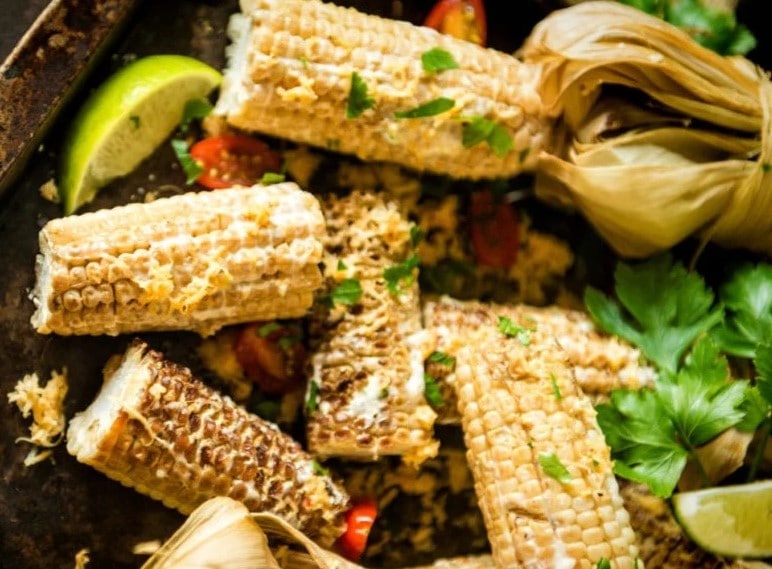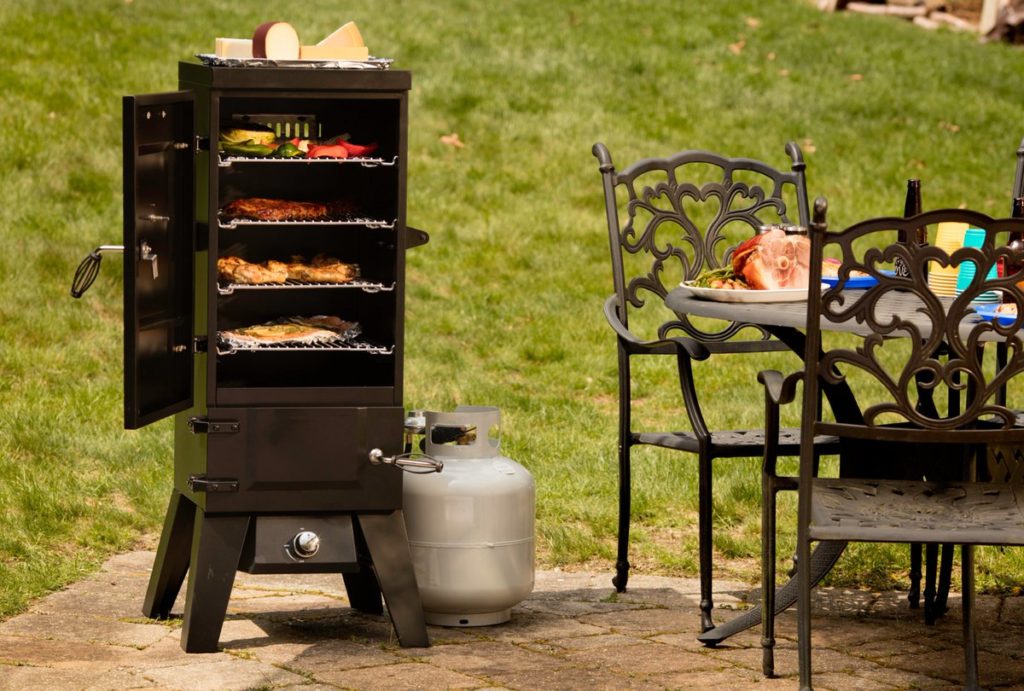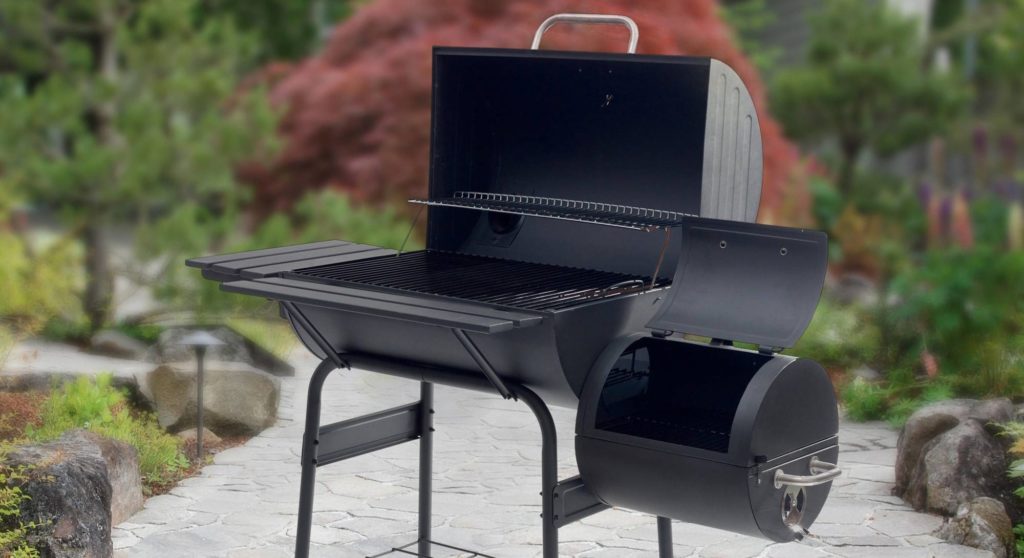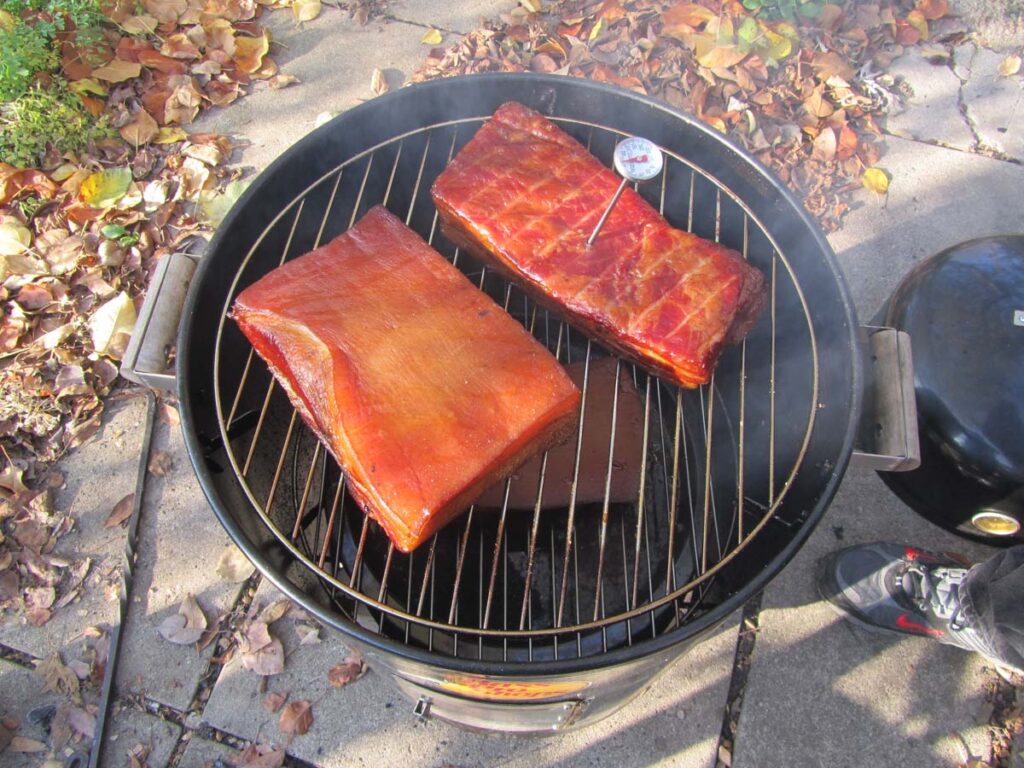

Even though there are few exceptions, the preponderance of grills cooking grates is either cast iron or stainless steel and there are many reasons for that. Both metals may be used to produce a safe and reliable cooking surface. However, since cast iron vs stainless steel grills are made of unique substances, they have different impacts on your cooking processes.
You should know the similarities and differences between cast iron and stainless-steel grates whether you are buying a new cooker or smoker, or if you want to replace the cooking grate on your current grill.
In this article, we will compare and analyze stainless steel vs cast iron grills grate so you can make a knowledgeable decision about which material is best for you.
We will go through the upsides and downsides of each, as well as what might be better suited to certain scenarios.
Let’s get started!
Cast iron vs stainless steel is both classified as iron composites. To put it another way, these are mostly made up of iron ore and feature other metals and components. The distinguishing factor between cast iron vs stainless steel is the non-iron metals and the quantity of them.
The carbon percentage of the two compositions varies considerably. Cast iron has a carbon content of roughly 2%. Stainless steel contains a carbon concentration of 1/10 to 1/2 percent.
As a result, cast iron has a higher carbon content than stainless steel, however, stainless steel also has chromium, that cast iron doesn’t have. Other substances might also be incorporated to improve stainless steel thermal transmission capabilities, which are generally weak on their own.
Both cast iron vs stainless steel grilling grids have their advantages and disadvantages.
It’s crucial to know the pros and cons of every alloy before purchasing new grill grates. This will help you to select the alternative that best matches your expectations and requirements.
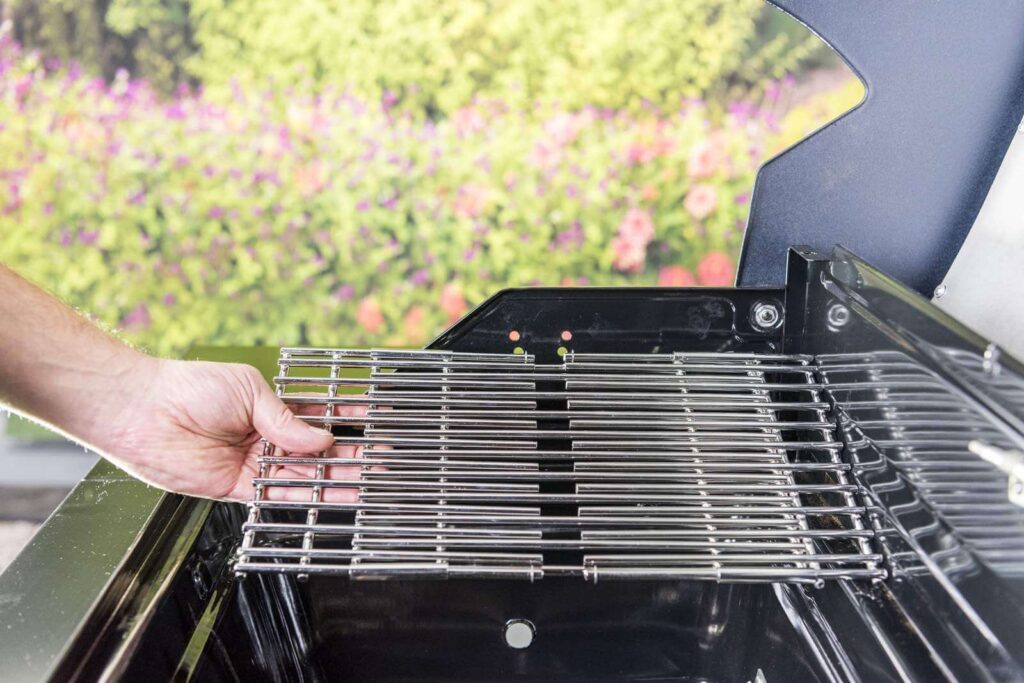
Stainless steel grates are less sensitive to rust or corrosion than cast iron grates since they include chromium in the composition.
Another advantage of stainless-steel equipment is how swiftly it gets hot. This helps you to cut down on time you would spend waiting for it to get to the optimum temperature, allowing you to get started sooner.
Lastly, another advantage of choosing a stainless-steel grate is the simplicity with which it can be maintained. Since they have a finer surface than cast iron grids, cleaning them with a wire grill brush is effortless. You may even clean a stainless-steel grate inside your kitchen sink by simply detaching it from your barbecue or smoker. Weber Stainless Steel Cooking Grates are quite easy to carry thanks to their lightweight qualities and, therefore, easy to clean or transport.
But there are some downsides. The first disadvantage is controlled by the type of stainless steel you purchase. While stainless steel is extremely durable, grill grates are frequently assembled of a lower-quality alloy. Stainless steel grates, however, will not endure as long as cast iron grates.
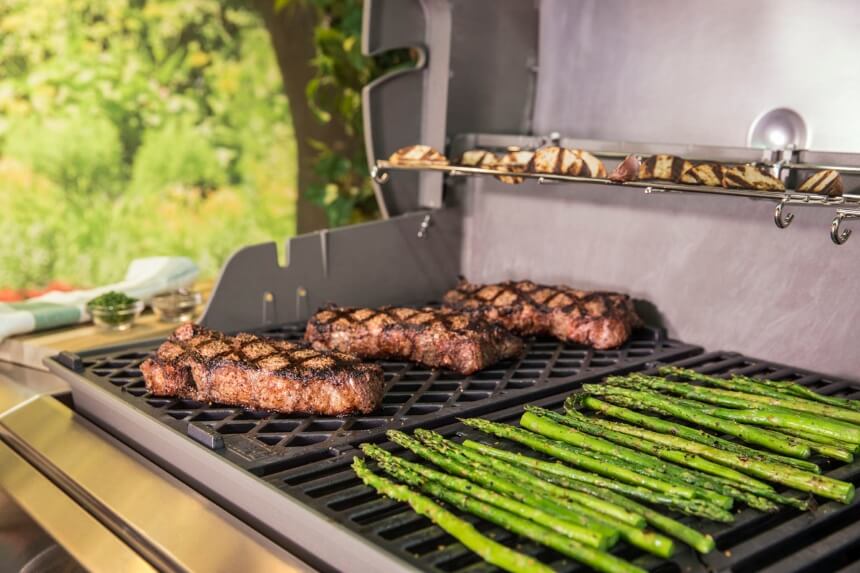
Cast iron grill grates are classified into two categories. The first is cast-iron grates that have an uncoated surface. The texture of this type is close to that of our normal cast iron skillet. However, it is flabby and permeable due to the lack of a coat. As a result, we must regularly grease cast-iron grates to prevent the unprotected iron from the moisture that causes corrosion.
The second variety of cast iron grates is the one coated with porcelain enamel, such as Weber Porcelain-Enameled Cast-Iron Cooking Grates. It has a glossy and smooth finish. Meat is less likely to adhere to this one, making clean-up a piece of cake. On the other hand, excessive scrubbing and washing might scratch the surface and gradually wear it out.
However, if you thoroughly maintain your cast iron grates, they will serve a lot longer, comparing to stainless steel. In addition, it’s much less pricey than stainless steel.
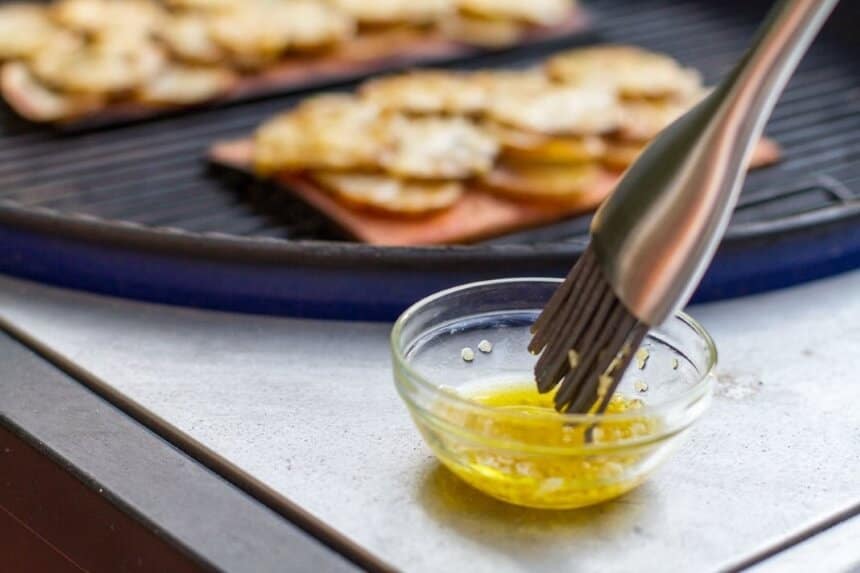
Pros:
Cons:
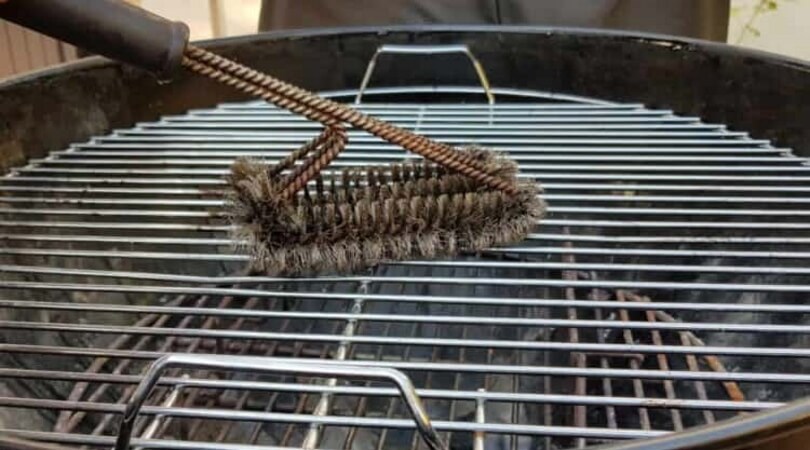
Cons:
Either you use stainless steel or cast-iron grates now or intend to get one in the nearest future, one of the biggest issues we all have is preventing stuff from clinging to the surface. Here are some suggestions to help you avoid this.
As we just stated, yes, you definitely should. Reduce grilling time by partially precooking meals in the oven or on the stove. Simply ensure that the meal is placed immediately after on the hot grill to finish cooking.
Place a sheet of foil or a flat metal pan on the counter. Spray or grease it with oil. Then heat all sides of the meal until they are slightly brown. You may transfer it to the grill after a few minutes of cooking.
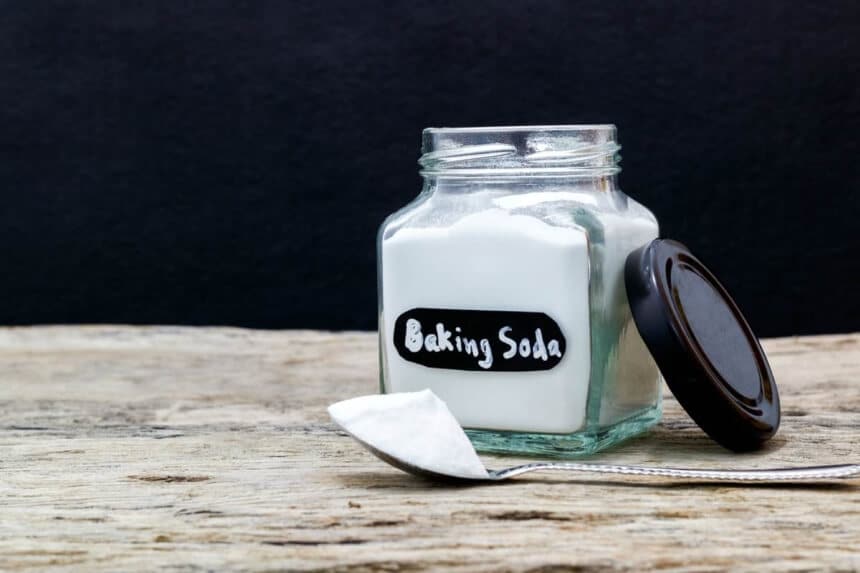
Unless you want to ruin the seasoning on the surface, do not clean your cast iron with water and soap. When trying to remove corrosion from any form of metal, it’s recommended to start with an abrasive scrubbing instrument. Cast iron may be cleaned using wire brushes or steel wool.
Try using vinegar, baking soda, or salt paste if you prefer to speed up the process with a cleaning solution.
After cleaning your grates, give them a nice rinse before properly drying them. You wouldn’t want any moisture to remain since it will cause corrosion to reappear very soon, perhaps even overnight.
So, which one should you choose now that you have a greater understanding of the characteristics and differences between cast iron and stainless-steel grill grates? Cast iron grill grates prepare the food quickly and produce excellent grill marks and taste. Nevertheless, to remain them maintained for decades to come, you must keep them clean, whereas stainless steel grates are lighter, more rust-resistant, and need minimal care.
Your choice comes down to a point of maintaining. Go with cast iron if you’re ready to put in the extra work to its maintenance. Alternatively, keep yourself from the headache and use stainless steel instead.
In the end, a battle between Stainless Steel vs Cast Iron Grill all about what you’re preparing and your particular tastes.
Buying low-quality grates are, in any case, one of the worst decisions you can make. A low-cost grate is more likely to deform, degrade its non-stick abilities, and rust than a high-quality model. So, try to get the best of the money you’re willing to spend.
